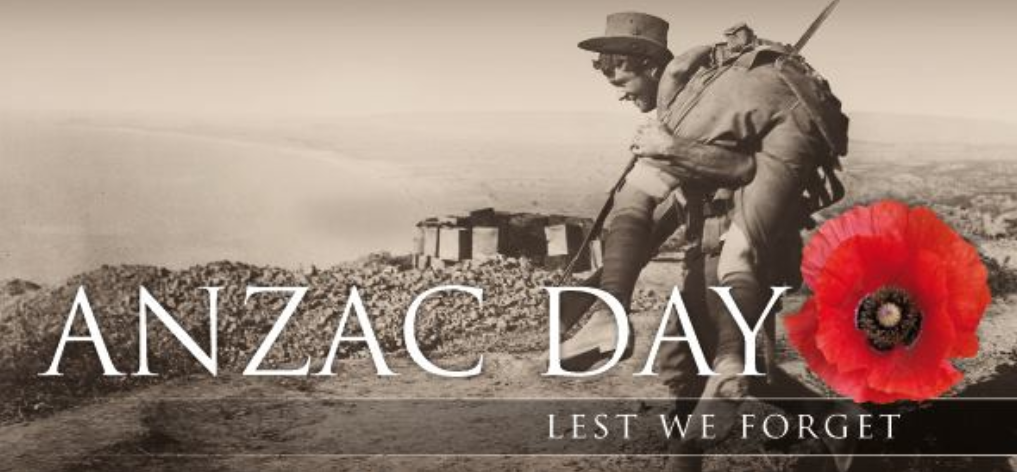On ANZAC Day we remember the fallen, the brave, the heroic. But behind every name etched in stone was a mother who gave life, and often, gave that life up to forces beyond her control. I suppose I am thinking about a reflection on grief, not just of war, but of all we have lost and still carry. It is a quiet meditation on the love that never stops, even when the world does.
At what point does loss become grief?
Loss can live quietly for a time. It can trail behind us like a shadow we refuse to turn and face. We speak of absence, of change, of distance. We say things have been lost - as if they might be found again. We tell ourselves stories of adaptation, of coping. But grief? Grief doesn’t ask us to cope. It asks us to stop and feel. To stand still in the debris of what once was and realise... our problem is that we remember too much to ever truly let go.
Loss becomes grief not when something leaves us, but when we realise it will not return. And then....what then?
That is where we are now, many of us. In a time soaked with quiet grief. Grief not only for people, but for a world that feels less rooted, less gentle, less kind. Grief for relationships that dissolved not through death, but through ideology, misunderstanding, or the relentless pull of ego. Grief for children grown distant. For traditions crumbling. For homes that no longer feel like home.
And yet this grief is not new.
It is ancient. It echoes in the earth. It echoes in the mothers.

Because it was a mother’s love that gave life to the boys who marched off to war. It was a mother’s arms that once cradled the same hands that would hold rifles. It was a mother’s lullaby that once quieted the same hearts that would learn to face death.
And when those sons left for the Dardanelles, or for the deserts of Tobruk, or the jungles of New Guinea, or the mountains of Afghanistan... it was a mother’s love that stood behind the gate and watched the truck drive away.

On ANZAC Day, we speak of courage. Of sacrifice. Of fallen heroes. But before the khaki, before the medals, before the trenches... there was tenderness. There was life given in labour, and raised through years of ordinary devotion. There was the patient love of women who packed sandwiches, knitted socks, wrote letters, and kept the fire going in the grate.
And then, when the news came - here was grief. Raw.
About 60,000 Australian soldiers were killed in the First World War; one in five of those who left home for the war did not return (compared with one in eight in Britain). Ken Inglis calculated that two out of every three Australians in uniform were killed or wounded, and every second Australian family was bereaved.
Not loud, dramatic grief. Not the kind that makes headlines. But the kind that endures in silence. That folds up uniforms and leaves them in drawers untouched for decades.
That sets a place at the table out of habit, then pretends it was a mistake. That never stops waiting, even when the war is long over.
A mother’s grief is a long, slow remembering. And it is in that remembering that we begin to understand what grief truly is.
It is not resistance to forgetting; it is the proof that we cannot forget. Grief is the evidence that love was real, and costly. It is not a weakness. It is the price of meaning.

And perhaps that’s the deeper truth we face now... not only on ANZAC Day, but in our lives today. We grieve not just people. We grieve possibility. A world that once felt whole. A version of family, of country, of hope that now feels cracked and unreachable.
We grieve children who turn away. We grieve beliefs we can no longer share. We grieve the stories we thought we’d live, and now must abandon.
And still, we keep going.
Not because we are brave, but because we must.
There is a quiet commandment written into every broken heart:
“When you can’t keep going, keep going.”
It isn’t triumph. It isn’t glory. It is simply survival. A mother who stands at the stove, stirring, even when the tears fall. A father who fixes the fence, even when the house feels empty. A woman who writes, who remembers, who feels the unbearable weight... and still keeps going.
To grieve, then, is not to be defeated. It is to be faithful. Faithful to what mattered. Faithful to the son who died at Gallipoli.
Faithful to the land, the memories, the kind of country we once believed we could be.
And perhaps this is the task of our time - not to escape grief, but to honour it. To make space for it in a world that rushes too fast. To say, quietly but firmly: This loss matters. This love mattered. This pain is not shameful. It is sacred.
So let us remember the mothers this ANZAC Day. The ones who gave life. The ones who endured loss without monuments. The ones whose grief did not march, did not fight, but held the world together in their absence.

And let us remember, too, those living now in grief... not only for sons, but for daughters, for friendships, for countries, for times that can never return.
Because in the end, we do not grieve for what we lost. We grieve for what we cannot stop loving.
And if love remains - then we must keep going.
Even when we can’t. Especially when we can’t.




















































